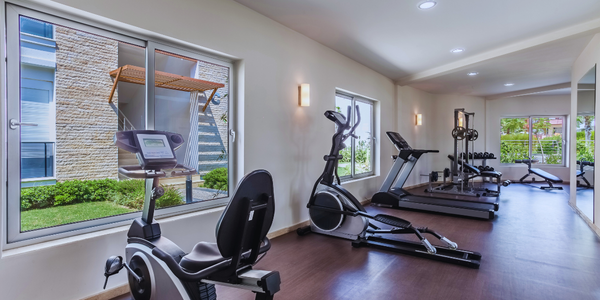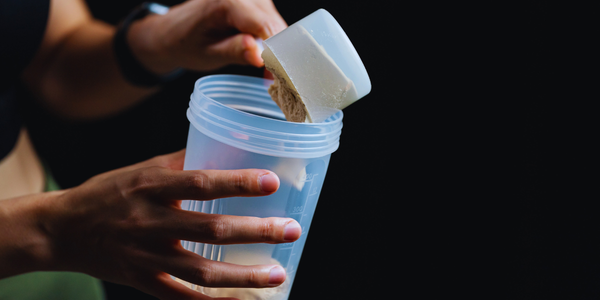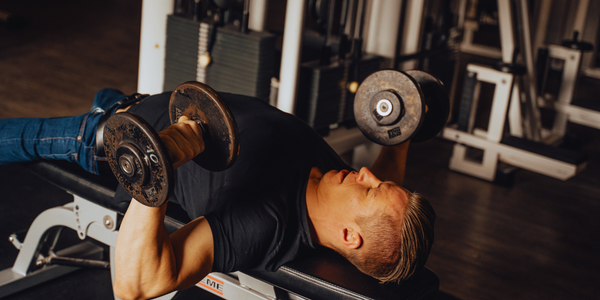Things You Should Do Daily to Boost Your Bone Health

Bones provide structure to our bodies. They guard our vital and fragile organs and help us become more mobile and active, that makes it very important to understand about your bone health.
There are many old people who are worried about their weak bones and wish they had taken better care of their bones.
This is because taking care of your bones requires an early start. If you want to enjoy an energetic and fit life in your later years, you should start looking after your bones now.
When we are young, our bones are at their finest strength. From our mid 20’s to when we reach 30, the density of our bones is at the optimum level.
However, after 30, our bones start losing their thickness. This makes them susceptible to injuries and fractures. Older age also invites bones diseases such as osteopenia and osteoporosis.
In order to prevent this situation, it is crucial that you should start worrying about your bones and start making them healthy and strong.
Strong bones require constant care and maintenance. Healthy changes in your diet and regular exercise can help you achieve stronger bones.
Here are highlights of daily habits that you should adopt to boost bone health.
Calcium means stronger bones
The first word that comes to our mind when someone says bones is calcium and rightly so, as bones are made of two substances namely calcium and collagen.
Calcium helps in making our bones stronger and durable. It is also helpful in maintaining the normal functions of our bodies.
Unfortunately, our body is not able to produce calcium on its own and it must be provided through diets or supplements.
When our body is lacking calcium, it extracts calcium from our bones to overcome the deficiency.

This leads to weaker bones and can result in bone diseases. In order to have healthier bones, include calcium-rich foods in your daily diet. Dairy products like yogurt and milk are considered to be the best sources of calcium but green vegetables such as broccoli, kale, and beet greens are also not far behind.
They can provide sufficient calcium for your body with an extra bonus of fiber. Tofu also provides calcium. So for healthier bones, be sure to include these foods in your daily consumption.
Say yes to vitamin D
Our body is unable to absorb calcium without vitamin D. Luckily vitamin D can be produced by our body. So take your sunglasses and say hello to the sun. Exposure to the rays for around 12- 13 minutes three times a week is sufficient.

Other great sources of vitamin D include egg yolks, fatty fish, and shrimps, etc. You can also get your vitamin D levels checked and opt for the prescribed supplements.
Keep it balanced
Besides calcium and vitamin D, some other nutrients can also aid in the growth and health of our bones. Following a balanced diet can also include these nutrients in our diet. Including vegetables, nuts, seeds, seafood and fruits in your diet can provide your body with magnesium, vitamin K and C.

Magnesium can provide strength to your bones and Vitamin K is used for bone formation.
Vitamin C, which is present in many citrus fruits, is used for the formation of collagen, one of the substances bones are made of.
Keep it Moving
Ensuring the health of your bones is not all about changing your diet; it is also about being active and keeping your muscles in shape.
Sedentary behavior has been found to have a negative impact on bone health. Doing the proper exercises for bones can help make them stronger and promote their growth.

Weight-bearing exercises are recommended for constructing and maintaining strong bones. Weight-bearing exercises include those exercises that require you to insert pressure against gravity.
They are of two types: lower impact and higher impact. Muscle growth and strengthening are another kind of exercises that promote healthy bones.
Include the following exercises in your daily routine to keep your bones healthy.
Swimming:
Considered as one of the best exercises, swimming can help build muscles. Muscles help to keep your joints and bones safe and strong. Healthy muscles equal healthy bones.
It also results in an all-round body workout leading to a strengthening of the core. The body is a sophisticated machine that needs constant movement in order to enhance function.
Weight lifting:
Another great way of building muscles is through weight lifting. These activities, which are lower impact exercises, can really help your muscles and bones.
As your muscles strengthen, they stimulate the bones to grow strong as well. Thanks to their constant effort, the bones are open to calcium deposition, taken from the intestine as you eat calcium-rich food.
Taking the stairs:
The next time you are thinking of taking the elevator to get to your office, stop yourself and take the stairs instead.
This high impact weight-bearing exercise can help to keep your bones strong.
It may seem a minor exercise at first, but this constant daily effort will have a toll on your bones. Slowly, your bones will start building mass, thanks to the stress on them.
Running/ Jumping:
Running is the best exercise to do if you are short on time. In addition, jumping has been proven to strengthen the hipbone and make the bones strong.
Again, this is due to the stress afflicted on the bones. Our body is driven by need. The presence of a stimulus causes your bones to increase in density, making them stronger.
Dancing:
Turn the music on and dance your heart out. Dancing like running is a great way to maintain the strength of your muscles and build bone density.
The flexibility, control, and balance all contribute to stimulating your bones. They grow stronger, depositing more minerals.
Yoga and Pilates:
Do yoga to bring flexibility and strength to your bones and body. Improved flexibility can also help to prevent risk falls in older people.
Yoga is a mild way of increasing bone strength gradually. Slowly, the mass builds as the salts are deposited and the bones are strengthened gradually.
An important thing to keep in mind is that not all of these exercises can be suitable for you keeping in mind your age or other medical conditions. An excess of some of these exercises can cause more damage than benefits. It is always recommended to consult a doctor or therapist first to know which one is the best for you.
Sustain a healthy weight
Maintaining a healthy weight is also very important for bone health. Underweight people are more prone to bone diseases and overweight people are at the risk of inserting pressure on their bones and muscles.

However, maintaining your healthy weight does not mean that you should do excessive exercise with little food consumption.
Strict dieting with high-intensity exercises has been linked to bone density loss. So always, keep a balance between your exercise regime and weight.
Your bones are responsible for bearing your mass. As you put on weight, they are stressed. Slowly, there comes a point where the flabby muscles are unable to protect the bones.
The fragile bone breaks under the weight of the body. Such fragile bones are difficult to heal as well. In addition, chronic weight strains bones resulting in bone and muscle pain.
Certain areas of your body will ache and result in throbbing or aching pain which is often due to the excess pressure on the bone.
Say a big no to smoking
This is another great motive to bid farewell to your cigarettes forever. Besides being linked to different types of cancer and other diseases, Smoking has been linked to low bone density and a lower rate of calcium absorption.
This is because the multiple chemicals in the smoke cause the osteoclasts in the bones to become active. Slowly, they start eating away the bone creating areas of less dense bone, which gives way to stress.
In order to increase bone density, you need to quit smoking and make healthy living choices.
Limit your booze intake
High consumption of alcohol can have a drastic effect on the efficiency of vitamin D in your body.
This inefficiency can lead to severe bone loss. It is better to limit your alcohol intake.
The best advice is to restrict it to one glass per day for women and two glasses per day for men. Alcohol slowly cuts off the organ and gradually results in an accumulation of toxins, which constantly attack the bones causing demineralization.
Take less sugar
High consumption of sugar in carbonated drinks is also not good for your bones. It has been found that high sugar intake can disrupt the equilibrium in the minerals present in your body.
This can cause extreme strain on your bones and also increases the risk of fractures. We consume far too much sugar than required and it can lead to unwanted changes in our body.
Sugar in the form of carbonated beverages is the worst. It contains a hefty amount of acid minerals, which require the extraction of calcium and magnesium from our bones to balance the acid out.
This ends up weakening our bones. The best way to avoid bone deterioration is to limit our sugar intake.
Go easy on your coffee
Taking more than 2 cups of coffee per day has been linked to a decrease in calcium absorption.
High consumption of caffeine as compared to calcium intake can result in bone deterioration.
Therefore, no matter how much you need your daily dose of java, limiting it will benefit you in the long run. It also affects the environment of the intestine.
Too much coffee decreases the efficiency of gut transport. Long-term reduction in caffeine improves gut blood flow and promotes calcium absorption as well as vitamin D uptake. Both of these elements are needed for healthy bones.
Limit your protein intake
High animal-based protein intake can lead to calcium being extracted from your bones.
However, it is found that less amount of protein in your diet can also result in low rates of calcium absorption.
This means that you should limit your protein diet to a maximum of 100 grams per day.
Poultry, red meat and pork all should be consumed less and should always be served with a hefty amount of vegetables.
Beware of the side-effects of your meds
Believe it or not, but many of the medicines that are part of our lives now have the side-effect of causing bone loss. Some steroids and antacids have these side-effects.
It is always better to talk first to the doctor about the prescribed medicines and whether or not they are going to affect your bones. A number of antibiotics, as well as steroids, can have bone demineralizing side effects.
You should always consult your doctor and take supplements where necessary. This will help you to keep your bones strong throughout your medication period.
A number of factors come together to influence your bone health & growth. There is not just one thing that determines their health. However, a single factor may add on to preexisting conditions and tip the scales.
Hence, it is always a good idea to optimize your bone health and modify your lifestyle for the better. This will help you preserve your bone health even if a single factor does decline.
You should never take your bones for granted. Starting early to maintain the health of your bones is crucial and will save you from regrets in the future.
In order to have strong bones, you should definitely include these habits in your daily life. Including these habits is not so difficult and following them is surely going to prevent you from many bone-related diseases.
Remember that stronger bones mean better health and better health can make you the happiest and wealthiest person in the world.
References:
https://link.springer.com/article/10.1007/s11914-996-0028-z
https://academic.oup.com/ajcn/article/87/5/1567S/4650438
https://academic.oup.com/ajcn/article/71/1/142/4729315
https://academic.oup.com/ageing/article/36/3/262/40400
ActiveMan — Make Your Move
The Modern Guide to Men’s Health, Fitness & Lifestyle.





